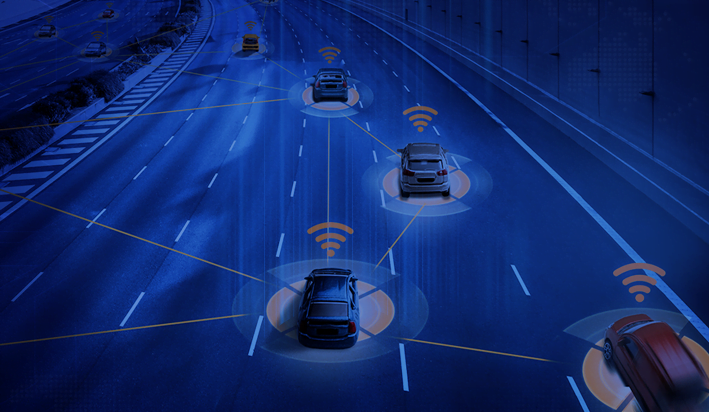In the recent times, Electric & Hybrid Vehicles have been on the rise, showing a tremendous progression in various aspects of commuting. Innovations in the automotive industry are geared toward the vision of a better commuting experience and eco-friendliness. This increase in features and applications attracts modern commuters of today, eventually making these Vehicles the most sought-after choice of commuting in this century.
Modern vehicles have become software-defined with many built-in features and have made smart commuting possible. Along with these technological advancements, connected cars contribute substantially to uplifting environmental standards. As connected vehicles are becoming more common, a recent EPM and SBD Automotive report show that 96% of new cars shipped globally in 2030 will have built-in connectivity. Connected cars intercommunicate several data sets from multiple sensors and provide rich data about other automobiles and the environment.
Payments
Integration of payment features with the connected cars would substantially reduce queues and congestion in many scenarios. The in-built system provides innovative payment options through a simple tap on the dashboard. The driver can charge the car and drive off from food outlets without even getting off from the vehicle, similar to using your voice assistant to do the shopping from your sofa.
Commute Assistance
The future of Vehicle-to-Vehicle (aka) V2V communication is already in progress. The U.S. Department of Transportation announced early this year that it plans to start taking measures to enable V2V communication for a seamless transit. Smart-connected cars assist commuters in reducing congestion and improving safety. Just imagine how helpful it could be if your vehicle informs you about an accident or a road collapse ahead of your roadway. Vehicles will communicate on the road, automatically transmitting data such as speed, position, and direction and sending alerts across the connected car network.
Streaming and Gaming
Many Virtual reality start-ups have started developing gaming for the connected car. Extended Reality (aka) XR (augmented, virtual and mixed realities) transforms the vehicle into an immersive gaming pod. The driver can select a variety of gaming experiences via the interface.
Integrating XR with the physical interaction changes the whole riding and gaming experience within the vehicle. There are loads of entertainment features already in place, and the evolution of vehicle technology towards autonomous driving makes in-car entertainment streaming more enjoyable. There is also a recent buzz that the entertainment giant Sony is making its debut in EV manufacturing and building entertainment pods for electric vehicles, which could take the entertainment features of modern cars to a new level.
Virtual Assistance
The Artificial Intelligence system in the car serves as an “assistant on the go”. The virtual personal assistant responds to voice commands and proactively assists commuters by providing necessary information accessed through the internet. Like Siri or Alexa, the modern connected cars can be controlled through a voice command from your home, unlocking car doors, starting the ignition, adjusting the temperature, and whatnot. It also helps you stay connected with your home and digital workspace. While driving the car, you can use voice commands to perform actions in the house, such as viewing surveillance cameras and accessing home appliances.
Smart City Integration
In a smart city environment, many IoT sensors communicate with each other to build a data map of the urban environment. The communicating sensors are integrated with infrastructures such as streetlights, buildings, and even road surfaces to share real-time information across the network. Connected cars are also mere IoT devices, as they are connected to the network. Data is transferred back and forth between the related entities. This integration helps in many use-cases like Parking area allotment, Traffic regulation, and SOS.
Since the dot com boom, connected car technology has progressed with the rapid advancement of IoT, AI, and ML. The automotive technological innovations focus on enhancing safety, optimizing routing, decreasing pollution, and improving accessibility. By incorporating various technologies with an in-car network, modern connected cars will change our perception of driving, revolutionizing the concept of human mobility for years to come.
Considering all the above aspects, connected car adoption will significantly surge worldwide. There is no doubt that connected vehicles will integrate fully into our digital lifestyle, just like smartphones and computers. And all these transformations mark a new era of mobility.
Fascinating, isn’t it?
Get in touch with our experts to know more about cutting-edge automotive technology & solutions.






